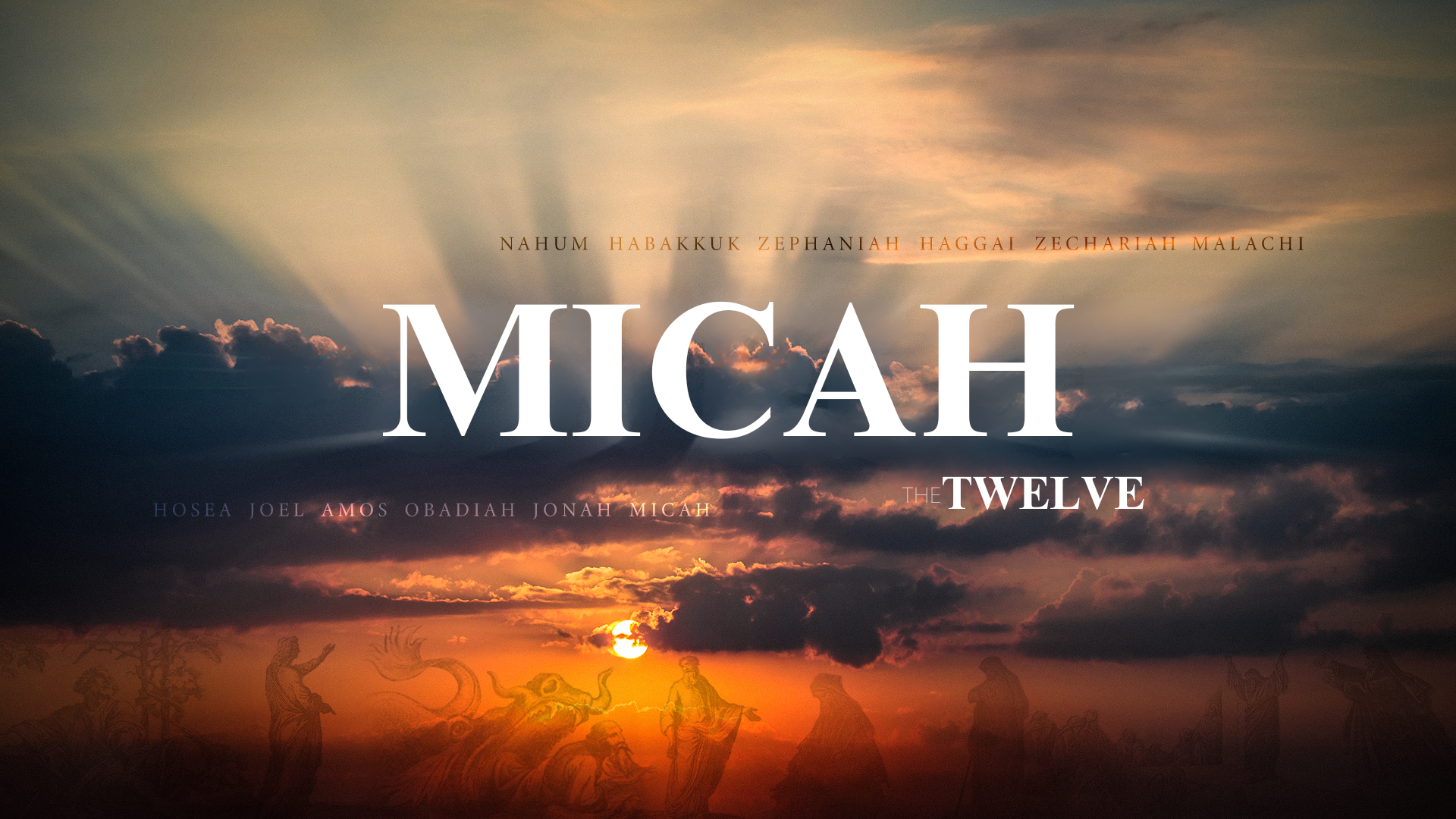Micah | A compelling mix of judgment and hope
Micah Overview
The Book of Micah is a prophetic book in the Old Testament that delivers a compelling mix of judgment and hope. Written by the prophet Micah, who ministered in Judah during the 8th century B.C. (around 740–686 B.C.), the book addresses both the northern kingdom of Israel and the southern kingdom of Judah. Micah’s message is rooted in God's deep concern for justice, covenant faithfulness, and genuine worship. He condemns the corruption and idolatry of the people, especially among the leaders, but also looks ahead to a time of restoration, peace, and the coming of a righteous ruler.
Historical Context
Micah prophesied during the reigns of Jotham, Ahaz, and Hezekiah—kings of Judah. His ministry overlapped with other prophets like Isaiah, Amos, and Hosea. This was a period of both political turmoil and economic injustice. The northern kingdom of Israel was on the brink of destruction by Assyria (which happened in 722 B.C.), and Judah was not far behind in its moral decline.
Micah, a native of Moresheth (a rural town in Judah), spoke from the perspective of a man who saw firsthand the oppression of the poor by the wealthy elite, the injustice of the courts, and the emptiness of religious ritual without sincere obedience.
Structure and Themes
The Book of Micah is composed of seven chapters and alternates between messages of judgment and messages of hope. It can be broadly divided into three sections, each beginning with the call to “Hear” or “Listen”:
- Chapters 1–2: Judgment on Israel and Judah
- Chapters 3–5: Condemnation of Leaders and a Future Ruler
- Chapters 6–7: God’s Lawsuit and Final Restoration
Chapters 1–2: Judgment on Israel and Judah
Micah begins with a dramatic picture of the Lord coming down from His heavenly dwelling to judge the nations. The mountains melt, and the valleys split as God approaches. The focus quickly turns to Samaria (capital of Israel) and Jerusalem (capital of Judah), who are guilty of idolatry and rebellion.
Micah laments the coming destruction and calls out the sins of coveting, seizing property, and oppressing others—especially the poor. The prophet warns that those who devise wickedness will face calamity. False prophets are also condemned for preaching only what people want to hear, especially messages of peace for personal gain.
Yet even amid the warnings, there is a glimpse of hope: a promise that God will gather a remnant of His people like a shepherd gathering his flock.
Chapters 3–5: Corrupt Leaders and the Coming King
Micah sharply criticizes the leaders of Israel and Judah—judges, priests, and prophets—who exploit their positions for power and wealth. They “tear the skin” from God’s people and “build Zion with blood.” Because of their corruption, Zion will be plowed like a field, and the temple mount will become a heap of ruins.
But hope is not lost. Chapter 4 describes a future when the mountain of the Lord’s temple will be established, and all nations will stream to it. It is a vision of global peace, where swords are beaten into plowshares and people live unafraid under their own vines and fig trees.
This hope culminates in Micah 5:2, one of the most well-known Messianic prophecies in the Old Testament:
“But you, Bethlehem Ephrathah… out of you will come for me one who will be ruler over Israel.”
This future ruler, born in Bethlehem, will shepherd God’s people in the strength of the Lord and bring lasting peace. Christians understand this prophecy to be fulfilled in the birth of Jesus Christ.
Chapters 6–7: God’s Case Against His People and the Final Hope
In chapter 6, God presents a legal case against His people. He reminds them of His faithfulness—bringing them out of Egypt, protecting them from enemies—and asks what He requires of them. This leads to Micah 6:8, the central verse of the book and one of the most famous ethical summaries in Scripture:
- “He has shown you, O man, what is good. And what does the Lord require of you?
- To act justly and to love mercy and to walk humbly with your God.”
Despite this call, the people remain deeply corrupt. Micah grieves the lack of justice and laments that even close relationships are marked by betrayal. Yet the final chapter also contains a personal declaration of faith. Micah says:
“But as for me, I watch in hope for the Lord, I wait for God my Savior; my God will hear me” (Micah 7:7).
The book ends with a beautiful prayer and assurance that God, who delights in mercy, will again have compassion. He will forgive sins and cast them into the depths of the sea.
Key Themes
- Justice and Mercy – God desires ethical living, not just religious ritual.
- Judgment and Hope – Sin brings consequences, but God always offers restoration.
- Leadership Accountability – Those in power are held to high standards.
- The Coming Messiah – A ruler from Bethlehem will bring peace and shepherd God’s people.
- God’s Covenant Love – Even when His people fail, God remains faithful.
Conclusion
The Book of Micah delivers a powerful prophetic message that speaks across centuries. It confronts the sins of injustice, corruption, and idolatry, while also painting a hopeful picture of a future ruled by a just and humble king. Micah’s call to “act justly, love mercy, and walk humbly” continues to inspire believers to live lives that reflect God’s heart for righteousness, compassion, and covenant faithfulness.


